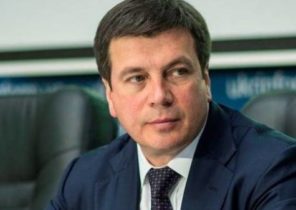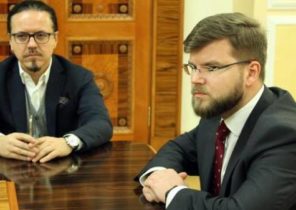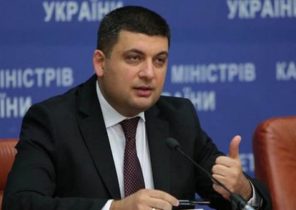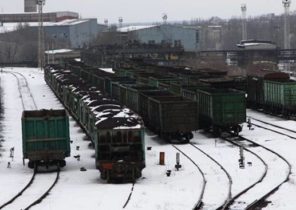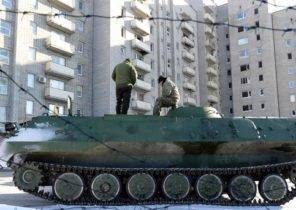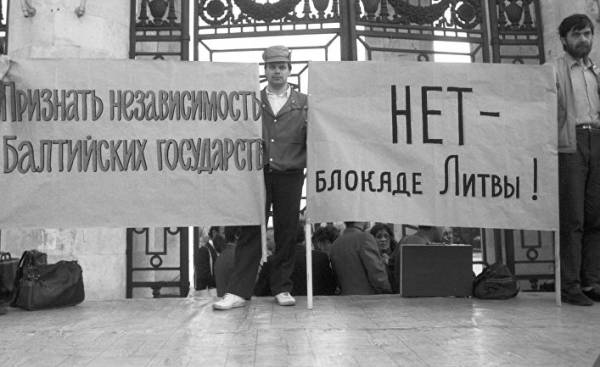
Held this year Latvian monitoring of social memory shows that among the Russian-speaking* more is not such a clear consensus about the way in which Latvia in 1940 has become part of the USSR. Namely: almost 38% of the population this year chose not to answer the relevant question. In this commentary, we want to refute the assertion that the Russian-speaking majority are afraid to speak out about how Latvia became part of the Soviet Union.
Among Russian-speaking not only increased uncertainty, but also the reluctance to be identified with the historical narrative, according to which Latvia joined the USSR as a result of voluntary decisions. A particularly sharp increase in the proportion of undecided (11 percentage points) was observed in the last five years.
For several reasons, we disagree with the view that under the influence of fear respondents, instead of sincerely expressing an opinion, chose the option “Difficult to say/No answer”. First, all 1005 survey through direct interviews in Latvian and Russian languages was conducted by professional interviewers SKDS, was anonymous. We are not talking about telephone interviews or Internet surveys, where there may be concerns about the ability to determine a phone number or IP address. Moreover, interviews were conducted only in the case if a Respondent expressed agreement. In addition, the respondents gave answers only in a personal conversation with the staff of the research center SKDS. In General, everything was done to make respondents feel safe without worrying that their identity will be disclosed.
Second, the question of how Latvia became a part of the USSR, there was no concept of “occupation” (neither in the question nor in the answers). This was done in order to avoid allusions to possible “right” answer. Moreover, the wording of the question is aimed at identifying “which of these statements most accurately describes,” not at establishing a true version. So, we believe that the answers of the respondents reflect their real opinion and not demonstrating conformity.
However, it remains an important question about taken two years ago, amendments to the Criminal law, which criminalized the glorification and gross denial of the genocide and crimes against humanity committed by the Soviet Union and Nazi Germany. Did these amendments make a conscious reluctance to answer the question of how Latvia became a part of the Soviet Union, is among those who believe that this was a voluntary annexation? Maybe this contributed to the so-called “amendment”loyalty?
Our goal is to establish convergent if the opinions of the Russian, support the version of the voluntary accession, with the opinion of Russian-speakers who chose not to answer this question. Here are the answers of these two groups about the justification of deportations. Respondents were asked to assess whether it is possible to justify the deportations, using a scale from 1 (“none of the cases was not justified”) to “5” (“in all cases was justified”). This question clearly shows, I’m afraid whether the speakers to Express their opinions. In fact, according to the Criminal law, public justification of Soviet deportations is a punishable act.
Almost none of both groups chose the option “Difficult to say/No answer”. If Russian was really afraid to speak about the period of Soviet occupation, the question would remain the same trend. But, as shows the analysis of the data, only a small number of Russian-speaking respondents (about 3%) chose not to answer the question about the justification of deportations.
Moreover, the issue of deportations see significant differences between these two groups Russian-speaking. “Abstained” on the issue of accession to the Union are much more likely (by approximately 19 percentage points) believe that the deportation was not justified in any case.
For these two reasons, — first, a negligible number of abstentions, who did not want to answer the question about the justification of deportations, and second, the differences in the selected responses — we believe that the choice in favor of the option “Difficult to say/No answer” in terms of accession to the Union does not indicate fear. Rather, it is a deliberate choice of a particular position.
Other issues monitoring of social memory also shows that most Russian speakers who did not comment on the accession of Latvia to the Soviet Union, to a much lesser extent are set up Soviet-style in comparison with those who support the version of the voluntary Association. For example, the first much more likely to not want Latvia was restored the Soviet regime (55,2%). Among the latter, the figure is only 37.8 percent.
In fact, the Russian-speaking segment characterizes moderate pluralism, as it dominates the view that the assessment of ambiguous historical events is best left to historians and other experts (80%), and it would be better if Latvia is less talked about events of history, in which society there is no consensus (70%). While acceptable, that different groups of people have different interpretations of events in history of Latvia in the 20th century (60%).
We can only guess why the Russian language is now much more likely to refrain to answer, as Latvia joined the Soviet Union. Perhaps this also contributed to the annexation of the Crimea. The fact that the context of the annexation of the Crimea in Latvian public space periodically heard comparisons with the Soviet occupation of 1940. So, it can be assumed that underline such Parallels has increased the uncertainty among Russian-speaking, or reduced the desire to openly support a narrative about voluntary accession. One thing is clear — despite the conclusions that could be done according to some media and commentators, Russian-speaking is not afraid.
*The term “Russian” refers to the ethnolinguistic group, whose representatives in the opinion polls as the language of family communication indicate Russian. This group may include respondents of different nationalities.


